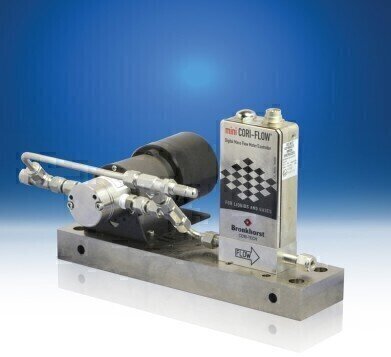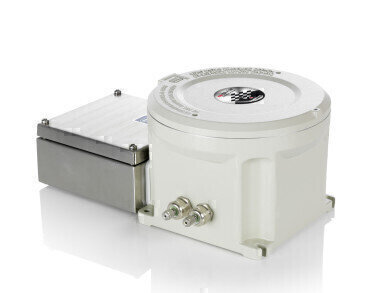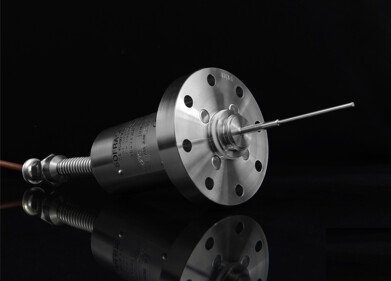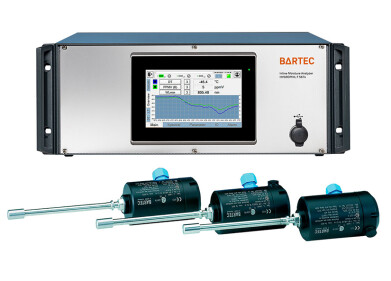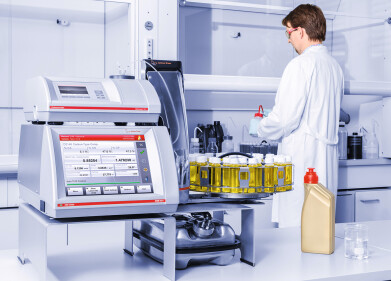Measurement and Testing
Performance Chemical Dosing Application
Feb 19 2014
Since the SPE Offshore Europe Exhibition in Aberdeen last September Bronkhorst UK has seen a marked increase in applications for performance chemical injection for both onshore and offshore production facilities. These performance chemicals, such as demulsifier, biocide, scale inhibitor, corrosion inhibitor and wax inhibitor are highly concentrated and are often required to be injected at very low flow rates.
The traditional method of chemical injection, a piston pump with check valves on the inlet and outlet, is tried and tested and works well for quite long periods of time. However, on occasion the check valves can foul and begin to 'pass'. Also, out-gassing or entrained air can cause an air-lock within the piston chamber that is simply compressed/decompressed in situ rather than pumped. In each of these cases the pump appears to be still working but there is no actual transfer of chemical into the pipeline. The only way to verify actual flow has been via a graduated gauge and a stop-watch; an empirical measurement but time consuming.
Another issue with the traditional method of injection is actually changing the flow rate. This can only be done manually by changing the stroke length of the piston – a process that is 'trial and error' and only verifiable using the graduated gauge as above. Fine tuning of injection rates, for example to compensate for day/night changes in temperature, across a field is virtually impossible as the labour required to do so is prohibitive. This results in the injection rate being set for worst case thereby resulting in overdosing during normal conditions – a very expensive waste.
Modern communications networks now allow for technology to arrive at diffuse production fields. The Bronkhorst CORI-DOSE system can be installed at each injection point and real-time monitoring, control and logging of injection rates can be achieved. This allows for remote checking of flow rates, remote instantaneous re-setting of those flow rates, on-board auto-alarm for status checking (for example, empty tank alarm and pump protection shut down), density change alarm, single point totalization, multi-point (total field) totalization for cost per barrel calculations and pump steering signal monitoring as a guide to preventative maintenance. In short, a very powerful tool within field management.
The technical specification is equally impressive, to mention but a few; accuracy is +/-0.2% of Reading, the instrument is certified to ATEX Zones 1 and 2, on-board PID control is standard, as is over-run protection and a self-learning function, the turn-down ratio is 2000:1, flow rates down to 0.1 grams per hour are easily achieved and the physical size ('the smallest Coriolis instrument in the world') is perfect for multiple injection points within confined spaces.
For more information on the Mini Coriolis instrument please contact Bronkhorst UK Ltd via email or call: 01223 833222.
Digital Edition
PIN 25.2 Apr/May
May 2024
Safety - Carbon monoxide toxic and flammable gas detection Analytical Instrumentation - Density: A fundamental parameter at critical stages within the petroleum sector - Advancements and...
View all digital editions
Events
May 19 2024 Minneapolis, MN
May 20 2024 Columbus, OH, USA
May 20 2024 Dubai, United Arab Emirates
May 23 2024 Beijing, China
May 23 2024 Beijing, China
